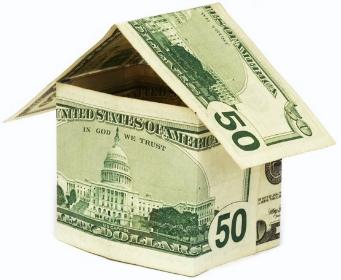Homeowners who are struggling with their finances while “stay-at-home” orders are in effect and shut downs affect most businesses got some relief in late March of 2020 when the CARES Act was signed in to law. The $2 trillion dollar bailout package, designed to float the economy while the United Staes battles an unseen enemy, has a number of well publicized measures such as business loans and free money mailed to taxpayers. The new law also dangles a carrot in front of homeowners — some may get the chance to miss one or more mortgage payments without the usual repercussions.
Before anyone leaps at the chance, however, it’s important to screen through the fine print for catches that could lead to unpleasant surprises later on.
First of all, the CARES ACT is a federal law, and so extends its offers only to loans that have a federal connection. That could mean the loan is backed by a quasi-federal agency such as Fannie Mae or Freddy Mac, or the Federal Housing authority (FHA).
It is estimated that about two-thirds of first mortgages qualify due to federal backing. Home owners can check their mortgages on line in most cases. Get some basic information like your social security number, and visit the web sites of Fannie Mae or Freddy Mac to see if your loan qualifies for federal relief. You can also check with the lender if they are answering phones.
Now for the catches: first you can’t just stop paying, but have to request permission to skip payments. Up to six months of payments can be skipped on Freddie Mac or Fannie Mae loans; FHA borrowers may be able to skip as many as twelve. Once permission is granted, late fees and negative credit reporting is avoided.
The major catch, however, is that the CARES Act authorizes a forbearance for missed payments, which is of limited value to strapped borrowers. Legally, missed payments during a forbearance become due as soon as the forbearance ends. For example, a homeowner with a $2,000.00 mortgage payment and a three month forbearance would technically owe a total of $8,000.00 in a lump sum in 90 days; the three missed payments, plus the currently due one.
Since many people aren’t going to be able to fork over such sums, a giant cloud hangs over the forbearance program. It is expected that there will be many negotiations in the coming months over what terms of repayments are offered, and at what price. But as of this writing (April 2020), none of this is spelled out in writing. Homeowners may well find themselves in a Wild West situation next year when payments are due: they may have to negotiate individually, or they may be coerced in to taking bad offers from their lenders.
What homeowners should be angling for instead of a forbearance is called a deferral (or sometimes a suspension). Under the terms of a deferral, repayment is usually postponed to the end of the loan, either by adding a ballon payment, or by extending the length of the loan by the number of months of missed payments. It works quite a lot like the loan modifications that were popular in the Great Recession. Any homeowner who can convince their lender to do a deferral instead of a forbearance has scored a major victory, and has possibly obtained some meaningful relief.
It is also worth mentioning that the CARES Act contains some modest help with foreclosure as well; so loan as a loan is federally backed, foreclosures can not be started between March 27th and May 17, 2020, and after that only if the homeowner is at least four months behind and not in forbearance or deferral.
By Doug Beaton
Attorney Douglas J. Beaton has practiced bankruptcy law in the Northeast for twenty six years, and is an active commentator on developments in bankruptcy practice and procedure. He can be contacted through this form:
